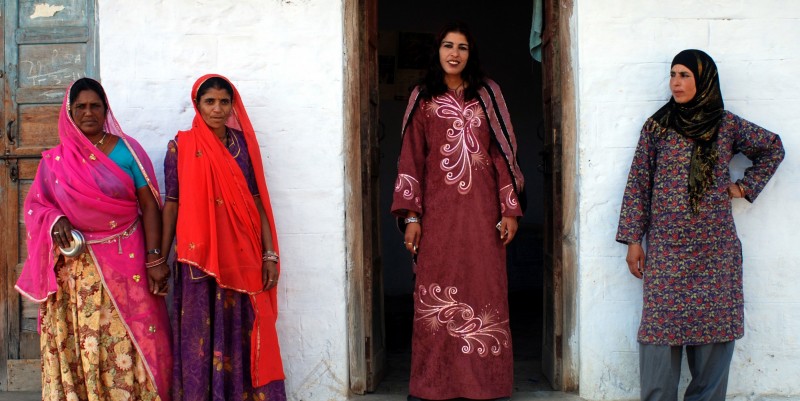The CCE is lucky to have many incredible
undergraduate and graduate student interns, assistants and volunteers who help
run its projects, events and initiatives. One of these driven individuals is
Mildred Ngminebayih, a CCE Staff Assistant and
CCE’s Faculty-Student Scholar, who organized
a screening of the documentary film, Solar
Mamas. Mildred hoped that the film would continue conversations fuel the
campus dialogue regarding women’s rights, health and education sparked by
International Women’s Day, which was celebrated last week on March 8th.
Mildred selected this film because she felt it best
demonstrated the power of education and it’s ability to help better the lives
of those most people all over the world, particularly women.
Solar Mamas primarily focuses on a 30 year-
old Jordanian woman named Rafea, who cares for four children and a husband in a
village close to the desert.
With
encouragement from the country's Ministry of Environment, she leaves her
village for the first time to go to the Barefoot College in India to train to
become a solar-energy engineer.
Mildred
has been touched by Rafea’s story, and thought that a screening followed by a
faculty-led a question and answer session discussing programs similar to
Barefoot College, about culture, technology and their its potential impact for
the greater on the Global Community, would be a great opportunity for BU
students to learn more about the plights of many women living in poverty in
developing nations and what they are doing to as they strive to help improve
themselves, support their families, and change their communities. Mildred said
that the turn out was more than expected, and a lively discussion followed the
screening.
The
Barefoot College in India was founded by Bunker Roy to provide knowledge and
training to the rural poor so that they can empowered them to make their
communities self-reliant and sustainable.
The
solar course at Barefoot College has women from Kenya, Burkina Faso, Columbia,
and Guatemala.
Rafea
was the first Jordanian woman ever to attend such a program, and she dreams of
returning home to bring much-needed income and talents to support her family
and village.
“It
was compelling to watch how the women bonded. despite the language barriers,
they were all so supportive of each other. The struggle for women's independence
is shown at such an intimate level in Solar Mamas, I was mesmerized”, said
Mildred.
The
discussion preceding the screening was facilitated by Assistant Professor of
Anthropology, Joshua Reno, who has done extensive research on the controversies
surrounding the use of modern technology to solve problems ranging from waste
and climate change to disability and energy insecurity. Technology, while
convenient, presents difficult questions, particularly in developing nations,
where tradition and cultural authenticity are sometimes at stake: How does
technology impact culture? Are these changes worth the conveniences that
technology provides? What gets lost in the transition from an older way of life
to a new, more "modern" one?
Mildred said that the conversations spurred by the film gave her hope that initiatives similar to the Barefoot College would gain traction in the Global Community.


No comments:
Post a Comment